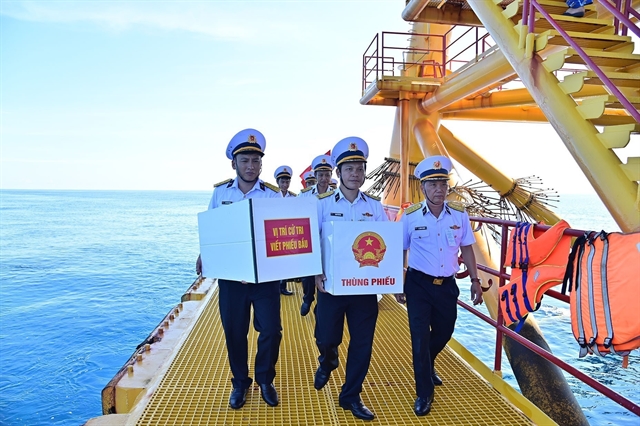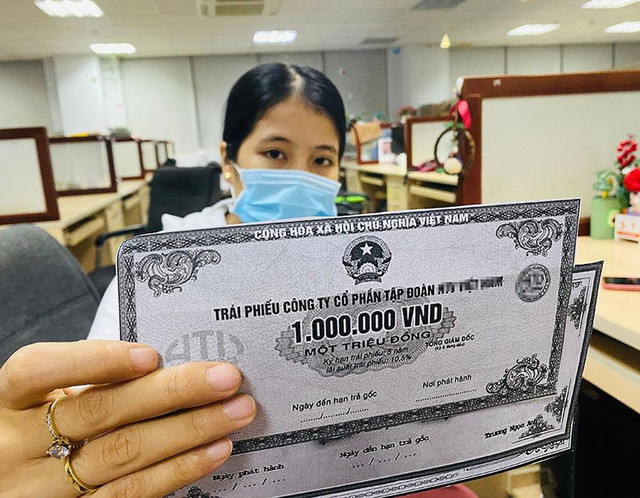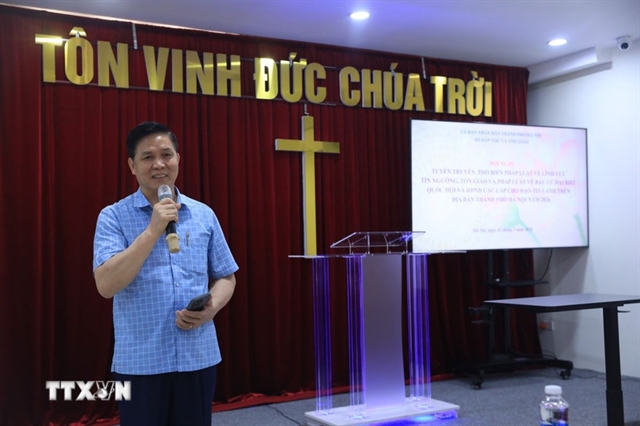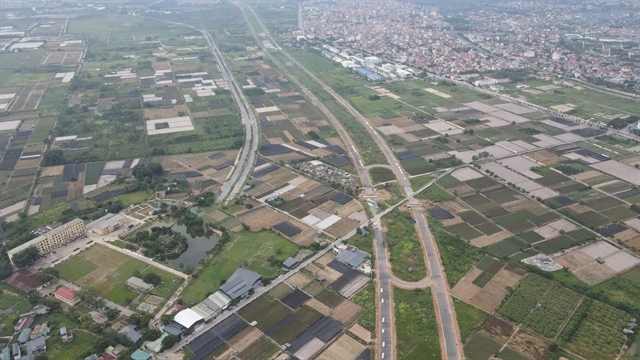 Society
Society
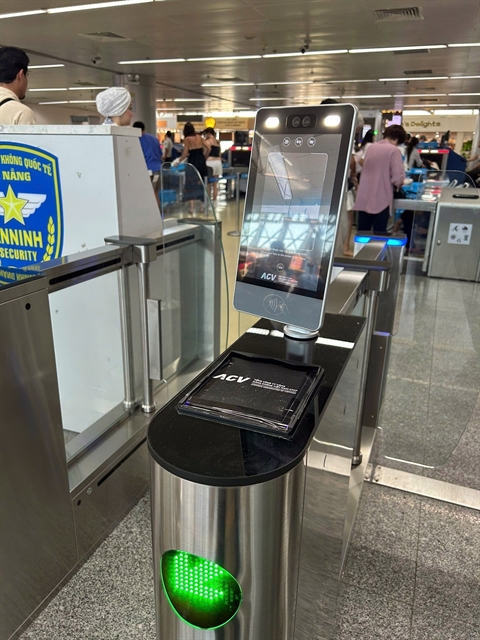
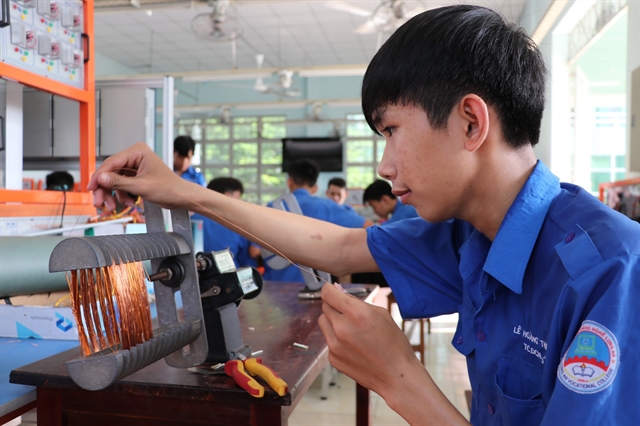 |
| Students in a practice period prepare to work abroad at Long An College. — VNA/VNS Photo Đức Hạnh |
Thu Trang
HÀ NỘI — Students at vocational schools have strong professional knowledge, but are quite weak in foreign languages.
The information was revealed at a conference on labour immigration to Europe and opportunities for Vietnamese workers, which was held on Tuesday in Hà Nội by the Việt Nam Association of Vocational Education and Training & Social Work (VAVET&SOW) and their partners.
The conference aimed to connect labour supply and demand, providing information for vocational schools to have more bases in adjusting training programmes, towards better meeting the needs of the domestic and international labour markets.
Việt Nam wants to send about 110,000 workers abroad this year.
The country’s goal is to maintain traditional markets and gradually increase the number of Vietnamese workers in European countries.
The latest statistics from the Ministry of Labour, Invalids and Social Affairs (MoLISA) showed that in the first three months this year, a total of 37,923 Vietnamese workers went abroad, reaching 34.48 per cent of the plan this year and increased by more than 15 times compared with the same period last year.
Nguyễn Gia Liêm, deputy director of the Department of Overseas Labour under the MoLISA, said that in recent years, more than 30 firms sending Vietnamese workers to the European labour market, focusing on Romania, Poland, Slovakia, Hungary, Bulgaria and Russia.
Workers in European countries mainly do jobs in industrial production, construction, food processing, textiles and agriculture.
Economic and trade relations between Việt Nam and the European Union (EU) had been developing very well, which could create favourable conditions for cooperation in human resources between Việt Nam and European countries, he said.
One more advantage is that the European market is viewed as a key one by the Party, State and the leaders of the MoLISA.
The Government has promoted the development of this labour market, Liêm said.
However, bringing workers to the European market met some obstacles.
Vietnamese workers in Europe have to compete with people from other countries in the EU, as well as other developing countries. Cultural differences and limited foreign language capacity are barriers in the working process and integration of the employees.
Besides, legal documents to recruit and carry out procedures to send workers abroad often take a long time due to different legal regulations. Some countries are quite difficult to approach for a work visa such as Poland and Slovakia.
Moreover, the cost of living in European countries is high, so it is difficult to invest in personnel management. Most European countries have cold winters limiting the employment opportunities of Vietnamese workers who aren't climatised to such weather.
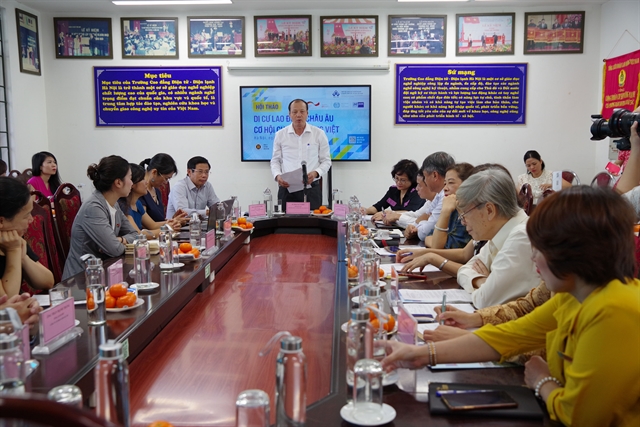 |
| Phan Sỹ Nghĩa, chairman of the Việt Nam Association of Vocational Education and Training & Social Work (standing), gives his opening speech at the conference. — VNS Photo Thu Trang |
Agreeing with Liêm, Trần Mạnh Thắng, director of the GHW Hà Nội Joint Stock Company, said, “There is a fact that most students at vocational schools just like to learn and are good at their majors, but foreign languages are not their strong point.”
He emphasised that if they wanted to work abroad, they must have good foreign language skills.
With the same view, Trần Xuân Ngọc, principal of the Hà Nội College of Electronics and Electro-Refrigeratory Technics (HCEET), said that at present, Germany was a labour market that received special attention from many Vietnamese people. Vietnamese workers here receive a stable high salary and good social benefits.
Vietnamese workers often have foreign language certificates, but they still cannot communicate effectively and are dismissed from work or school.
Some workers lack the necessary skills and, as a result, they cannot get apprenticeship contracts and live illegally.
“Vietnamese workers must overcome these challenges. They must prepare their personal competencies to take advantage of job opportunities and career development potential in the German labour market,” Ngọc said.
Solutions
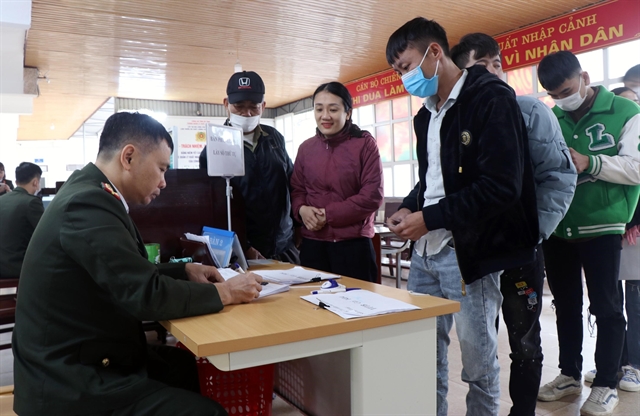 |
| People wait their turn to complete procedures to work abroad at the Hà Tĩnh Immigration Office. — VNA/VNS Photo Công Tường |
Director Thắng said, “One way to achieve the desired foreign language level is to find good training centres for students.”
Principal Ngọc said that Germany has a high demand for quality labour and specialised skills. Developing a labour training model for the German market is an important step, in which language training is key to help workers make the most of opportunities.
HCEET established an International Language and Training Centre for vocational students with lecturers from the Việt Nam National University, Hà Nội University and the Goethe Institute.
The German learning model focuses on developing the ability to communicate from basic to advanced levels.
Students practice listening and speaking, enabling them to confidently use German in everyday communication and in professional presentations and discussions.
They also learn basic information about the culture, customs and way of life in Germany.
“Understanding German culture is very important for students to integrate and work effectively in a multinational environment there,” Ngọc said.
Deputy director Liêm said that to promote labour market in the EU, State management agencies must step up study and negotiate for agreements on labour cooperation with potential recipients of Vietnamese workers.
They will review and amend the laws on sending workers abroad in line with the development of the foreign labour market.
They will also organise activities to give more information about potential labour markets in Europe to workers.
Concerned ministries will perform periodic and irregular inspections to ensure firms comply with regulations, and discipline those that violate the law.
Cooperation with Vietnamese diplomatic missions in other countries will be strengthened to protect and resolve problems related to Vietnamese labour.
Related authorities will work together to prevent illegal immigration to Europe, and obtain more opportunities for legal workers under safe contracts.
“Labour migration will be aimed at high-quality workers in high-income markets. The number of trained workers will gradually increase, with at least six months of training.
"We will gradually raise the rate of trained workers from 60 per cent to 80 per cent by 2025, towards all worker migrants being properly trained," Liêm said. — VNS


